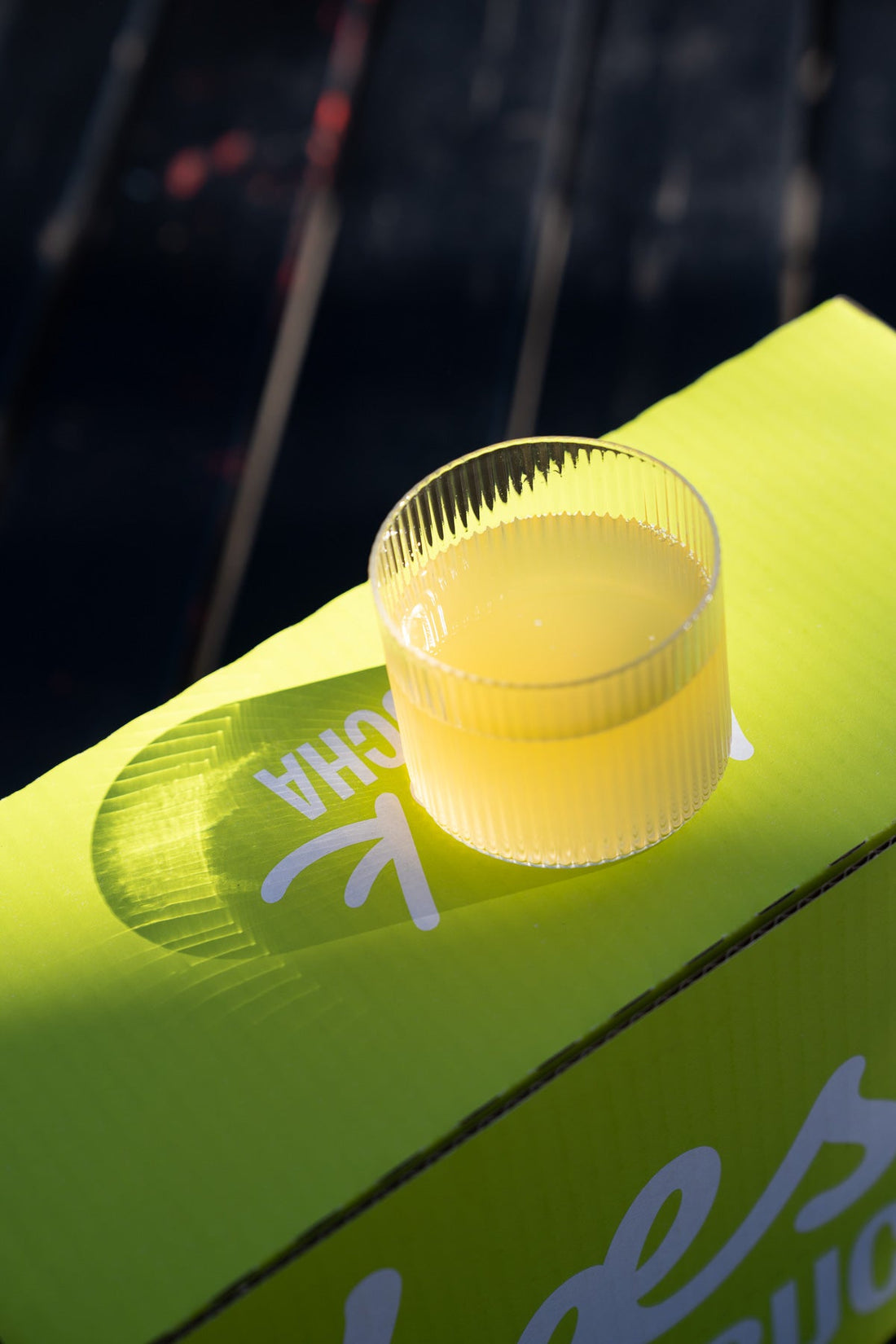
Kombucha and health: everything you need to know about bacteria
What is kombucha?
Kombucha is a fresh and bubbly drink made by brewing a sweet tea and fermenting it with a yeast and bacteria culture - a so-called SCOBY (Symbiotic Culture Of Bacteria and Yeast).
The live culture breaks down some of the sugar and converts it into various organic acids that give natural flavor, body and freshness to the drink, in addition to the potentially beneficial effects.
Is kombucha a healthy health drink?
Kombucha has been a legendary health drink for more than two thousand years, because it supposedly cured the sick Emperor Qin Shi Huang, who then proclaimed the drink his 'elixir of life'.
Kombucha then enjoyed a modern revival in California in the 1990s, where it took on a position as a lifestyle health drink. The founder of America's largest kombucha brand still markets himself on the fact that his mother's incurable cancer disappeared after she started drinking his fermented tea.
At Læsk, we are a little more conservative in our rhetoric, but the rules for claiming here in Denmark are also much stricter than in the USA.
Kombucha and bacteria
It is the live bacterial cultures that have given kombucha its status as a wonder drink. The bacterial composition varies from drink to drink, but typically consists of a variety of acetic acid and lactic acid bacteria, in addition to different types of yeast. These can all have a beneficial effect on the microbiome, whether they are alive or dead, but the effect they have varies from person to person.
Naturally occurring organisms in kombucha are not, on paper, probiotic, but it is legal to add organisms that have undergone several documented and scientific tests for their effect - in which case they must be declared on the back of the label. Even though they are added, they are just as natural in their cell structure as the naturally occurring ones.
Live bacteria in kombucha - the big misconception
It is a common misconception that yeast and bacteria must be alive to have an effect in the intestinal system, and that heat-treated bacteria have no effect.
Research shows that heat-treated bacteria are also beneficial. For example, one study has shown that bacteria, whether they are "live" or not, can:
positively affect the immune system by regulating inflammatory processes and improving the barrier function in the intestine.
strengthen the intestinal barrier by initiating repair of barrier function after damage caused by various pathological (disease-causing) conditions.
have a wide range of direct anti-pathogenic effects, including inhibition of growth, production of antimicrobial compounds.
Probiotics - whether unpasteurized or pasteurized - can therefore be effective in maintaining a healthy intestinal flora and benefit both digestion and the immune system.
The research project referred to and its scientific article:
Piqué, N.; Berlanga, M.; Miñana-Galbis, D. : Health Benefits of Heat-Killed (Tyndallized) Probiotics: An Overview. International J. Mol. Sci. 2019, 20 (10), 2534
Drink Kombucha: no more need for a refrigerator
For years, we've been advocating for unpasteurized kombucha — and saying it out loud.
But we have become wiser.
Just as research has evolved, we've learned a lot about bacteria and the microbiome in recent years. Through countless brews, hours of geeking out — and yes, by drinking hundreds of liters of kombucha.
And although we love the raw and the living, there is one point we can no longer defend: the requirement for constant storage at a maximum of 5 ºC.
It is difficult, expensive and anything but sustainable — both economically and in terms of climate.
Therefore, we have adjusted the process:
From now on, our kombucha will be lightly pasteurized. Same recipe, same taste, same brewing method — but now put through a tunnel pasteurization that gently stops fermentation.
This means:
-
The product remains stable and safe
-
No exploding cans
-
No taste changes on the shelf
-
And you don't have to stress about the cold chain.
Our kombucha now features the robust bacteria strain Bacillus subtilis HU58™ , which can survive pasteurization and remain active – without refrigeration.
So yes, it still feels good in the stomach. In more ways than one.
Read much more about the new bacteria here:
Active bacterial culture in Läsk Kombucha
Health benefits of kombucha
In addition to the fact that kombucha is fermented and contains potentially beneficial bacteria and organic acids, there are also a number of points where it can be the healthier choice:
The sugar content in Læsk is less than 50% of conventional sodas and fruit juices.
The drink can be a good, non-alcoholic alternative to wine, beer and cider.
Läsk Kombucha is brewed with green tea, which is known for its content of antioxidants, which in some contexts have been shown to have a positive effect on blood pressure and metabolism.
Kombucha is not a health drink and there is no documented effect that kombucha - neither unpasteurized nor pasteurized - can cure diseases.
Kombucha should be drunk because you love the sour, fermented taste, and hope for a beneficial effect as a bonus.
